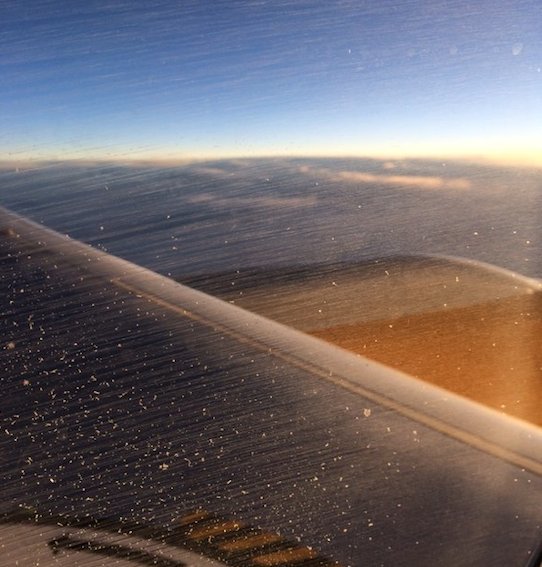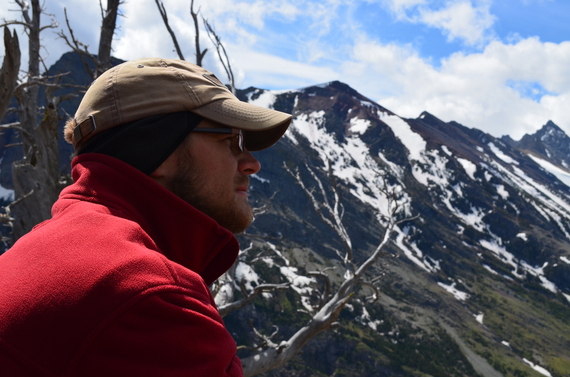Flying into Paris, I am awestruck by the position I find myself in. At first look, nothing about what is happening or coming up makes any sense. I am a teacher, so what am I doing in Europe for a week? I had to rely on family and friends to be able to make this trip and cannot be more thankful to them and their generosity. But why am I here and not just watching and hoping from afar?
Climate change has become a matter that is personal and urgent to me. The science is even more urgent, and gives us a clear warning: if we keep doing what we are doing, we are headed for disaster. The disaster isn't spread out equally, however. The global poor, already food and water insecure, feel the impacts more deeply that I ever will. A drought, to me, means carefully drip-watering my garden and trees while letting my grass go dry. A drought for literally billions of poor in this world can mean starving or thirst. That alone makes it worth addressing and working to minimize the impacts of an already changing climate.
This is why so many people attending COP21 are drawing attention to the perspective of equitable climate justice. Because those who had the least impact on the climate and are the least able to respond to a changing climate will be harmed the most.
But there are other reasons to act too, and each one has its own urgency. If we remain on the track we're on, by 2050, 25% of the world's diverse plant and animal life will have gone extinct. Ecosystems will be changing too quickly to adapt or move altogether; invasive species will occupy a wider and wider range. Too many of our great cities are built just above sea-level; tens or hundreds of millions of refugees could result from a relatively small rise in the sea level. Overall evaporation and rainfall increase with the temperature, increasing the severity of extreme weather and the frequency of heavy rainfall events. The list goes on: wildfires, ocean ecosystem changes... The point is that we need to act, and we should have started 20 years ago. No more delays or excuses. I read a telling quote the other day: "Nobody cares about the economy once the water runs out."
I am here to represent my students and and myself, and to call for what needs to happen to address this problem in a way that helps the people who will need the most help.
Minneapolis-based nonprofit, Climate Generation: A Will Steger Legacy, is leading a delegation of 10 Education Ambassadors to COP21 through their Window Into Paris program, December 5-11. These 10 teachers - representing diverse subject areas, grade levels, and school communities from Minnesota, Denver, Atlanta, upstate New York and western North Carolina - are connecting their students to climate policy in action, helping to build both climate literacy and the relevance of this issue in their students' lives.


